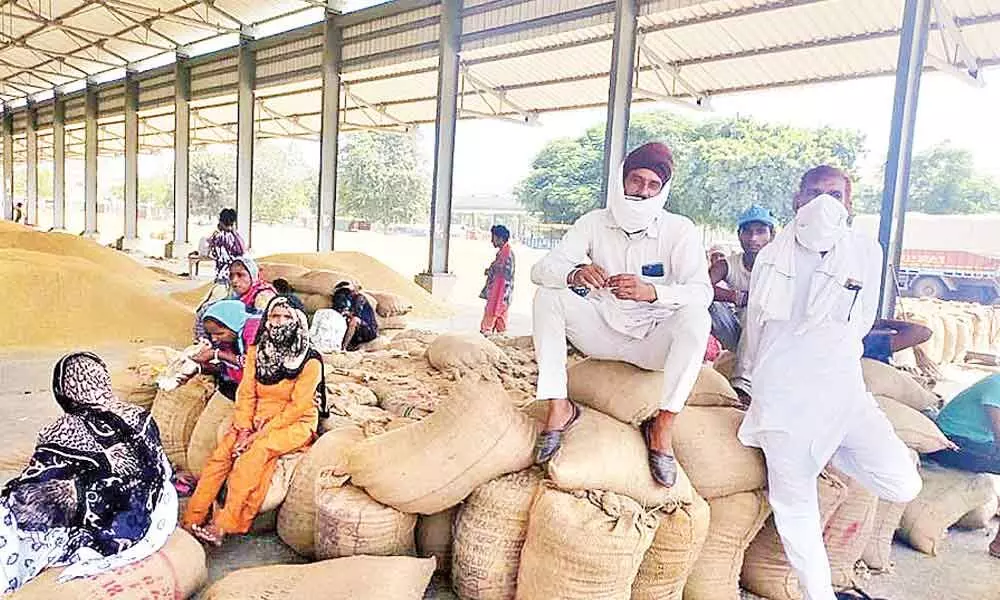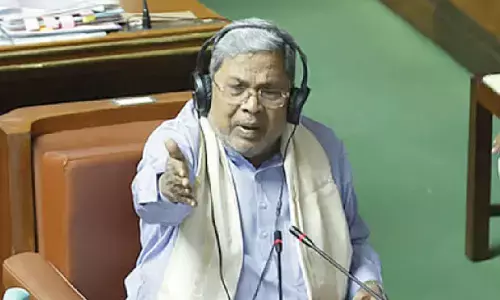Contentious farm laws: Beyond the obvious

Contentious farm laws: Beyond the obvious
The three laws recently passed by Parliament, relating to the farm sector, have generated a good deal of animated discussion in the country, between and amongst the various stakeholders, including the Central and the State governments, academic institutions, scientific and technological establishments, non-governmental Organisations (NGOs), Community-Based Organisations (CBOs), and, of course, armchair critics such as I, occupying a ringside seat, watching from a safe-distance!
While many sound opinions have been expressed, there has been no dearth of uninformed, if not irresponsible, analysis either, largely on account of the fact that the subject is virgin territory.
I, myself, have been wary of rushing in where angels fear to tread. But my reticence is now beginning to be equated, either to an inability to form an opinion, or the reluctance to express it.
After all, I am supposed to be an expert on the subject! I, therefore, wish to make a very loud and positive statement – namely, that I wish to say nothing! Because I have nothing to say. At least at this moment. It is early days yet. The jury is out.
And, mercifully, the whistle has been blown for a recess, and we have a year and a half in which sober consideration of the implications of the unfolding scenario can take place.
The laws, after all, have just been enacted.
And, a great deal of confusion is in the air on account of the clash between politics behind the legislation on one hand, and even more politically motivated opposition on the other.
The views of respected economists, persuaded by varying political philosophies, have not helped either. Thus, the need to allow the laws time to convert the promise and expectations into realisation, has been put on the backburner.
I must hasten to add, at this stage, that I have the greatest respect for renowned economists such as Ashok Gulati and Amartya Sen. Only, I am unable to feel the need to offer any views on this at this juncture of time.
The laws mean well, and have the potential, albeit latent for the moment, to deliver the makings of a situation that can make come true what the farming community of the country has been dreaming of for a long time – access to the best possible markets, with no one coming in the way. And, of course, the benefit of the technology, administrative efficiency and the reach/network that only corporates can possess, especially when compared to the Central and the State governments.
For the potential of these laws to be realised, however, all the stakeholders, such as the Central and the State governments, the scientific and technological institutions, the corporate sector, the NGOs and CBOS, and the farming community itself, will need to prepare, and execute, a carefully drawn up plan of action, to put in place an enabling environment.
Many steps will need to execute that plan, such as promoting collective action by the farmers (through cooperatives, FPOs and arrangements such as contract farming), encouraging farmers to adopt appropriate technologies, strengthening the research and extension systems to generate and propagate technologies designed specifically to respond to market signals, organising support from financial services such as credit and insurance and facilitating the adoption by farmers' practices that ensure efficient storage, processing and transport to markets. The commodities produced by the farmers, in other words, need to become products before they reach the market.
It can be hardly gainsaid, in this context, as already pointed out in many quarters, that not only such steps could have been taken, but also the stakeholders afforded an opportunity to be better prepared for the situation, had the legislation been preceded by the customary preparatory stages, such as, for instance, reference to the Parliamentary Consultative Committee. That, however, is now water under the bridge.
In the immediate context, the corporates will certainly stand to benefit from the provisions of the laws. That should, in my opinion, cause no great concern. The important point is – there is a destination to be reached and we need to have the determination to travel to it, the perseverance and determination to proceed towards it in a systematic and methodical manner.
So far as the issue of minimum support price (MSP) is concerned, I must record that I have never believed that arrangement to be an effective solution to the issues the farming community faces, especially in relation to the economics and profitability of farming operations.
Therefore, I am unable to appreciate the logic behind the demand for making it statutory commitment. MSP, however, has its advantages, especially in regard to rice and wheat, and has not only ensured a reasonable return to the producers, but also gone a long way in creating a sense of comfort from the point of view of the food security of the nation.
Its abrupt withdrawal, therefore, is fraught with consequences which are highly avoidable. I therefore feel that it should be gradually faded out, in a sunset arrangement and, ultimately, the free play of market forces allowed take place.
It will, therefore, be proper, and desirable, for the Central government to make an announcement and soon, to the effect that MSP will continue and, thereafter, take steps to begin the process to of replacing it by a more sustainable arrangement in the long-term, which will ensure that the full benefits of efficient penetration of the best markets by the farmers are realised.
The rest, to plagiarise Shakespeare's Hamlet, should be silence, which I for one, have been resolutely observing! At least so far! Heard melodies after all, as Keats said, are sweeter than those unheard.
(The author is former Chief Secretary of Andhra Pradesh. Views expressed are personal)














